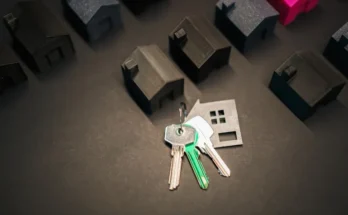Real estate—an industry older than modern currency—has always been more than bricks and land. It’s a story of human ambition, economy, emotion, and strategy. Whether you’re buying your first home, building a rental portfolio, or flipping properties, understanding the heartbeat of real estate—the highs, the lows, and the gray areas in between—is crucial. Let’s take a deep dive into the rise, fall, and future of real estate, and how savvy investors can navigate this thrilling, often unpredictable journey.
Understanding the Real Estate Cycle:
Real estate doesn’t grow in a straight line. Like the economy, it moves in cycles, typically split into four stages: Recovery, Expansion, Hyper Supply, and Recession.
In the Recovery phase, the market is still healing from a downturn. Property prices are low, construction slows, and buyer sentiment is cautious. This is often the most overlooked phase, but potentially the most rewarding for investors with vision.
Then comes Expansion, where job growth fuels housing demand, new constructions rise, and prices steadily increase. Confidence returns and the market hums with opportunity.
Next is Hyper Supply, when developers overestimate demand. Properties flood the market, vacancies rise, and prices begin to plateau or fall. Investors who bought at the peak may feel the pinch.
Finally, the Recession phase reintroduces fear. Demand shrinks, prices drop, and foreclosures climb. However, this phase also clears the market of excess, setting the stage for the next cycle.
The Rise of Real Estate:
There have been pivotal moments when real estate soared. The post-WWII era, for example, saw a massive housing boom fueled by returning soldiers, government subsidies, and industrial growth. Suburbs blossomed, homeownership became a symbol of stability, and developers flourished.
Fast-forward to the early 2000s, another surge occurred—driven by easy credit, low interest rates, and speculative investments. Home prices climbed rapidly, and real estate seemed like the golden ticket to wealth.
During booms, it’s easy to forget that markets don’t rise forever. But these periods are not inherently bad. For disciplined investors, booms are an opportunity to capitalize on appreciating values, especially if they buy during the early expansion phase and sell or refinance before oversupply sets in.
The Fall:
Every boom contains seeds of its own undoing. The 2008 housing crisis is a cautionary tale etched in recent memory. Triggered by subprime mortgage lending and financial instruments that no one fully understood, it wasn’t just a housing collapse—it was a global financial meltdown.
Home values plummeted, millions lost their properties, and trust in the housing system was shaken. This wasn’t the first crash, but it was one of the most devastating.
Markets also experience more minor corrections—price drops after unsustainable growth. These aren’t always catastrophic but can still sting investors who overleveraged or bought at peak pricing.
The key lesson? Booms feel eternal. They aren’t. The smart investor plans for the fall even while rising.
Investing Smart:
-
Timing the Market vs. Time in the Market
Trying to perfectly time the real estate market is a fool’s errand. Even seasoned pros get it wrong. The better approach? Focus on “time in the market.”
Real estate rewards those who think long-term. Buying quality property in a good location and holding it through multiple cycles almost always beats chasing short-term gains.
That said, understanding where the market is in its cycle helps guide your strategy. During recoveries, seek undervalued properties. In expansions, focus on cash-flow-positive investments. During hyper supply, hold off on over-leveraging. In recessions, be liquid and ready to buy distressed assets.
-
Diversification
Diversifying your real estate portfolio—across regions, property types (residential, commercial, industrial), and strategies (rental, flipping, REITs)—protects you from localized downturns. It’s insurance against being caught off-guard when one market falls while another rises.
-
Know the Numbers, Not Just the Neighborhood
Emotional investing is one of real estate’s biggest traps. Just because a home looks beautiful or is in a trendy area doesn’t make it a sound investment.
Smart investors crunch numbers: cash flow, cap rate, ROI, loan-to-value, occupancy rates. They use data to make decisions, not sentiment.
Emerging Trends Shaping the Real Estate Future:
-
Technology is Disrupting Tradition
From virtual home tours to blockchain property transactions, the real estate industry is in the midst of a digital transformation. PropTech (property technology) startups are making it easier to list, buy, sell, and even manage properties remotely.
Artificial intelligence is helping with predictive analytics, identifying the best areas to invest before they go mainstream. Investors who embrace technology will gain a competitive edge.
-
Sustainability and Green Living Matter More Than Ever
The next generation of homeowners and renters want eco-friendly spaces. Solar panels, energy-efficient appliances, and sustainable building materials aren’t just nice-to-haves—they’re becoming must-haves.
Properties that embrace green building codes often attract higher rents and enjoy better resale value. Cities, too, are offering tax breaks and incentives for sustainable developments.
How to Begin Your Real Estate Journey?
You don’t need a skyscraper to begin. Many successful investors started with a single-family rental or even a duplex. The key is to start. Learn as you go. Make mistakes—but small ones.
Get pre-approved for financing, learn how to analyze deals, talk to local agents, network with other investors, and build a team of trusted professionals—inspectors, contractors, property managers.
Financing is a powerful tool in real estate. You can control a $300,000 asset with a $30,000 down payment. But leverage cuts both ways.
Don’t max out your credit just because the bank allows it. Keep a financial cushion. Be ready for vacancies, repairs, or economic shifts. Conservative leverage lets you sleep better at night.
Conclusion:
The rise and fall of real estate is inevitable, but it’s not something to fear—it’s something to understand. Every downturn resets the stage for the next upturn. Every boom opens the door to wealth creation for those who remain disciplined.
If you treat real estate like a get-rich-quick scheme, you may burn out—or get burned. But if you treat it like a long-term business, study it, respect it, and adapt with it, real estate can become one of the most powerful engines for building lasting wealth.
Patience, planning, and perspective—that’s the true foundation of success in real estate.




